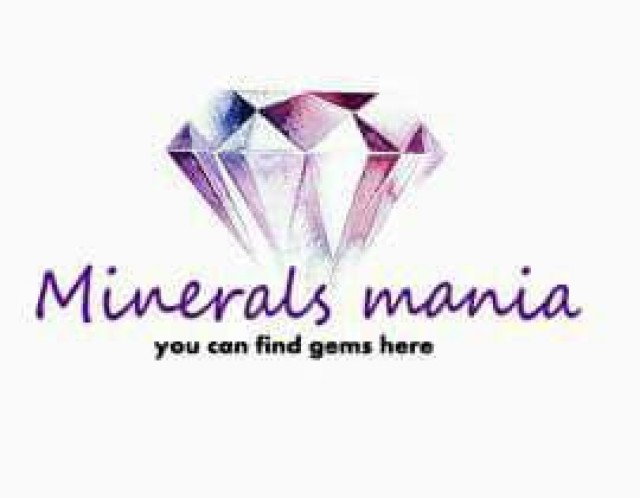Diamond 0.60 Ct Natural Stunning Brilliance Diamond - SKU T
- UGS
- Dimensions (mm)
- 5.200 x 5.200 x 3.400mm
- Poids (cts)
- 0.600
- Treatment
- HPHT
- Couleurs
-
Diamond’s characteristic chemical composition and crystal structure make it a unique member of the mineral kingdom. Diamond is the only gem made of a single element: It is typically about 99.95 percent carbon. The other 0.05 percent can include one or more trace elements, which are atoms that aren’t part of the diamond’s essential chemistry. Some trace elements can influence its color or crystal shape.
The way a mineral forms helps determine its identity. Diamond forms under high temperature and pressure conditions that exist only within a specific depth range (about 100 miles) beneath the earth’s surface. Diamond’s crystal structure is isometric, which means the carbon atoms are bonded in essentially the same way in all directions. Another mineral, graphite, also contains only carbon, but its formation process and crystal structure are very different. The result is that graphite is so soft that you can write with it, while the diamond is so hard that you can only scratch it with another diamond.
Without any one of these factors, the diamond might be just another mineral. Fortunately, though, this special combination of chemical composition, crystal structure, and formation process gives diamonds the qualities that make them extraordinary.
On almost all modern birthstone lists, diamond is recognized today as the birthstone for April. Diamond is also the gem that marks the 60th and 75th wedding anniversaries.
Treatment: Heated
- UGS
- Dimensions (mm)
- 5.200 x 5.200 x 3.400 mm
- Poids (cts)
- 0.600
- Treatment
- HPHT
- Couleurs
-
Diamond’s characteristic chemical composition and crystal structure make it a unique member of the mineral kingdom. Diamond is the only gem made of a single element: It is typically about 99.95 percent carbon. The other 0.05 percent can include one or more trace elements, which are atoms that aren’t part of the diamond’s essential chemistry. Some trace elements can influence its color or crystal shape.
The way a mineral forms helps determine its identity. Diamond forms under high temperature and pressure conditions that exist only within a specific depth range (about 100 miles) beneath the earth’s surface. Diamond’s crystal structure is isometric, which means the carbon atoms are bonded in essentially the same way in all directions. Another mineral, graphite, also contains only carbon, but its formation process and crystal structure are very different. The result is that graphite is so soft that you can write with it, while the diamond is so hard that you can only scratch it with another diamond.
Without any one of these factors, the diamond might be just another mineral. Fortunately, though, this special combination of chemical composition, crystal structure, and formation process gives diamonds the qualities that make them extraordinary.
On almost all modern birthstone lists, diamond is recognized today as the birthstone for April. Diamond is also the gem that marks the 60th and 75th wedding anniversaries.
Treatment: Heated
| Fournisseur d'expédition | Expédition vers Thailand | Expédition dans le reste du monde |
|---|---|---|
| Standard Shipping - Tracked | $10.00 / 21 | $15.00 / 21 |
|
Thailand
Standard Shipping - Tracked bénéficie d'une remise de $16.00 sur les commandes contenant 2 ou plus d'articles
Reste du monde
Standard Shipping - Tracked bénéficie d'une remise de $16.00 sur les commandes contenant 2 ou plus d'articles
|
||
| FedEx | $28.00 / 12 | $28.00 / 12 |
|
Thailand
FedEx bénéficie d'une remise de $28.00 sur les commandes contenant 2 ou plus d'articles
Reste du monde
FedEx bénéficie d'une remise de $28.00 sur les commandes contenant 2 ou plus d'articles
|
||

-
 Positif
PositifThis is REALLY nice
-
 Positif
Positif5 Star Excellent Seller! YES>All pieces received YES>Color saturation accurate YES>Clarity accurate YES>Weight within +- 0.1ct YES>Shipped within 3 days after payment
-
 Positif
Positif5 Star Excellent Seller! YES>All pieces received YES>Color saturation accurate YES>Clarity accurate YES>Weight within +- 0.1ct YES>Shipped within 3 days after payment
-
 Positif
Positif5 Star Excellent Seller! YES>All pieces received YES>Color saturation accurate YES>Clarity accurate YES>Weight within +- 0.1ct YES>Shipped within 3 days after payment
-
 Positif
Positif5 Star Excellent Seller! YES>All pieces received YES>Color saturation accurate YES>Clarity accurate YES>Weight within +- 0.1ct YES>Shipped within 3 days after payment


















![Blue Diamond (1.14 Ct) - Fancy Deep Blue [ALGT Certified] (Seal Box)](https://liveplatforms-production.b-cdn.net/tenants/gr/uploads/images/2235000-2239999/2238365/7a41acc6-ca23-4fb4-8afe-a2f97969a299.jpg?width=480&aspect_ratio=1001%3A1000)

